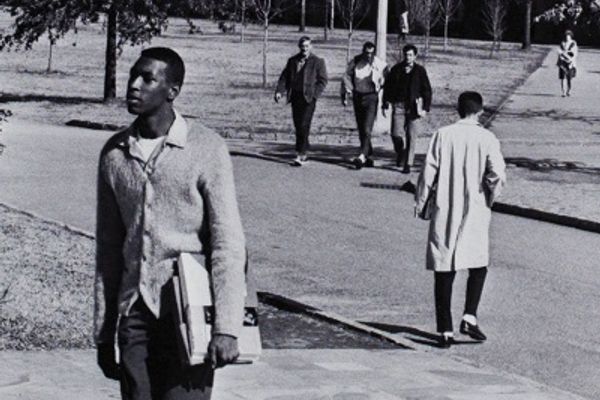I remember the first time I was the first.
I come from a long line of educators, and ever since I was a child, my grandmother instilled in me the importance of an education. As I was sitting on her lap, swaying in her porch rocking chair in North Philadelphia, my grandmother told me about the times she was the first. The first to move away from home for Philadelphia in 1952, the first in the family to go to college, and the first Black woman in her family to start a small restaurant business. She would tell me that people will say what they want and do what they want, but they don’t matter. “As long as you have an education, well, that's something no one can take away from you,” she said to me.
I had no idea I came from such a long line of firsts. Her mother, my great-grandmother, was also a first: the first in her family to get a divorce, a taboo for a woman in the 1920’s, and the first in her family to acquire land, located in Gaston, North Carolina, which she left as a legacy for her children. I now know that being the first is in my bones, and it takes courage to stand alone.
Much like Joseph Vaughn, I was the first Black student in my class at a majority white and affluent private K-12 school just west of Philadelphia's city limits. My mother likes to tell me a story about my first day of school. I came home in tears after my first day of Kindergarten saying, “Mommy, none of these kids look like me.” Looking back, my heart aches for my mother in that moment. Deciding on when and how to tell her child that she was Black, and entering a space where people were different from her, that she was the first, and to have the courage to stand alone in a space that wouldn’t always be accepting of her is a difficult conversation for a mother to have with her young daughter.
From that day forward, I grew accustomed to being the first, and sometimes the only one in the room. I have felt this way more than once throughout my four years at Furman. When I find myself feeling a bit out of place or discouraged, I call to mind one of my personal heroes, Joseph Vaughn.
Joseph Vaughn was, and continues to be, an extraordinary part of Furman’s history. He was the first Black student to attend our beloved Furman University, setting an impressive academic and social standard. Joseph Vaughn was not only known for being an excellent student in the classroom, but also for being engaged in campus life and activities. He was a part of the cheerleading team and active in Furman’s Theatre department. Lillian Brock Flemming, one of Furman's first female African-American students once said, “When you met Joseph Vaughn, you met life.” Vaughn was not afraid to be the first, and he was not afraid to stand alone when many others might not have had the courage to do the same. Joseph Vaughn stepped forward into his calling.
As a current Black student at Furman, I find comfort in the words and legacy that Joseph Vaughn left for me, as well as other Black students and students of color. He largely shaped the trajectory of Furman, paving it to be a place where students can thrive no matter their color, background, or origin. As a second semester senior, I am often nostalgic about my time here. The time I have spent at Furman has shaped me like no other. I continue to move forward upholding my personal legacy of firsts and being courageous, much like Joseph Vaughn.
The fact of the matter is good things come from being the first, like the first Black President in 2008, or first Black and Asian female Vice President in 2021. Being the first takes courage and being the first means change. I encourage the student body to continue celebrating the legacy of Joseph Vaughn, and to cherish their time spent in our precious Furman community. Like a fleeting moment of forever, your time here will be done. But beyond the walls of Furman leaves a lasting legacy of one.
